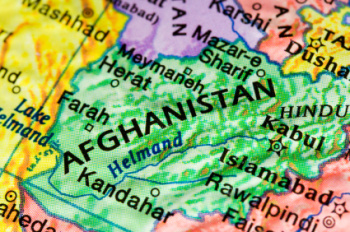Claims by Afghan President Hamid Karzai’s brother Wali that the government had reached a secret ceasefire with the Taliban to allow for safe voting across Afghanistan appears to have been premature; in both small villages and major cities potential voters are considering the serious dangers of voting in the election.
 The risks are not just the vague prospect of a bombing at some polling place somewhere. Militants have made it a point to announce that anyone caught with an inked finger, a sign they voted in the election, will have that finger cut off.
The risks are not just the vague prospect of a bombing at some polling place somewhere. Militants have made it a point to announce that anyone caught with an inked finger, a sign they voted in the election, will have that finger cut off.
Officials have conceded that violence may force some polling places to close early, and in many Taliban-heavy portions of the nation, polls won’t open in the first place. This is likely to keep the vote amongst Pashtuns, the nation’s largest ethnic group, artificially low.
And even in places where the vote will be held, a severe shortage of female staff and the official segregation of voting by gender is expected to keep much of the nation’s female population from voting as well. The US has said the appearance of legitimacy in this week’s vote is exceedingly important to the ongoing war effort, but if most of the nation is unable to vote, it seems impossible to imagine how the result can be spun as legitimate.


